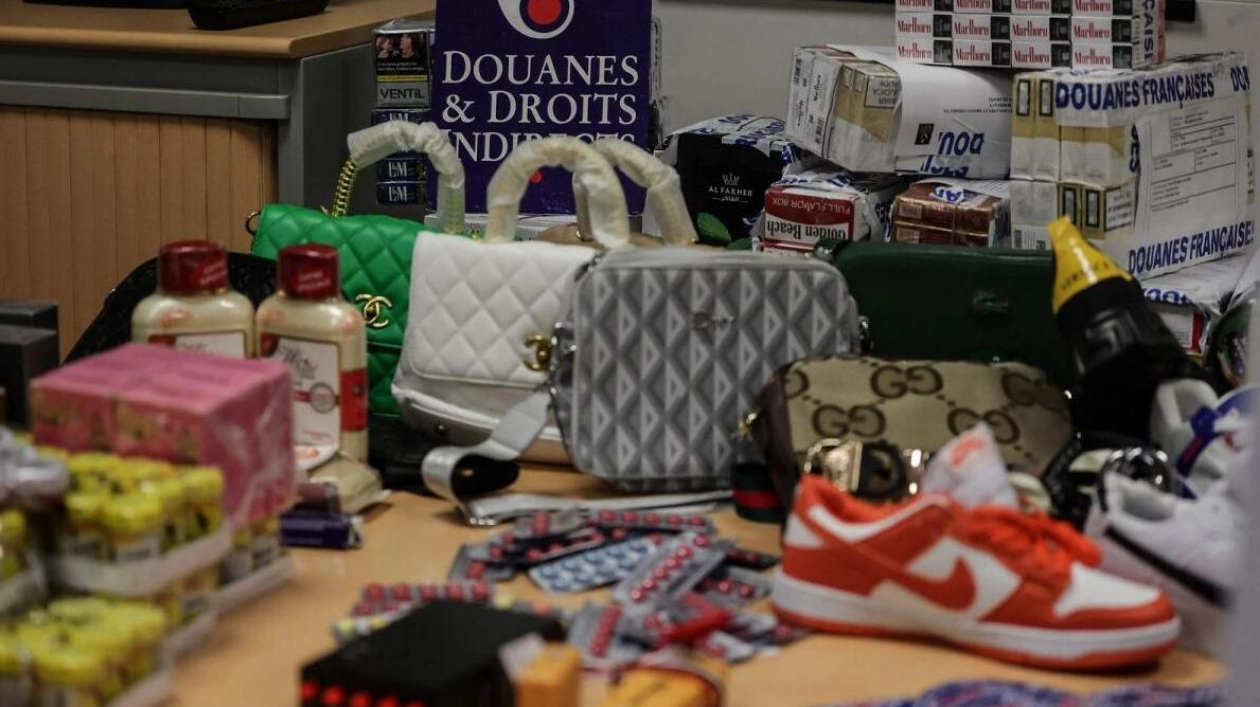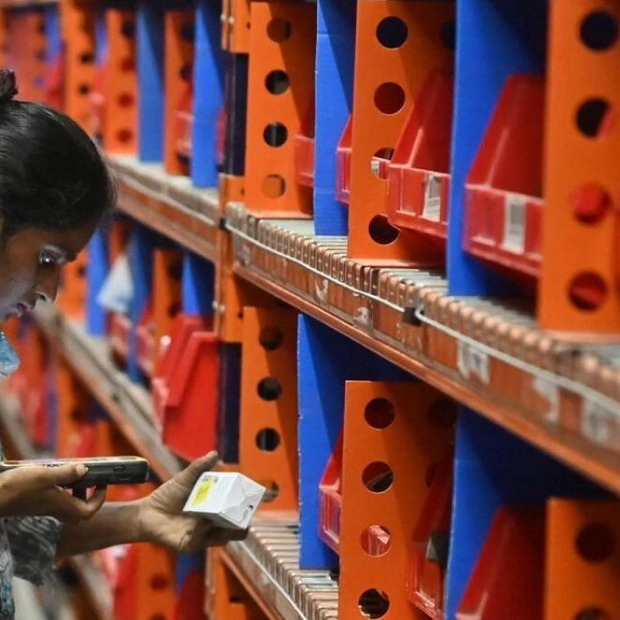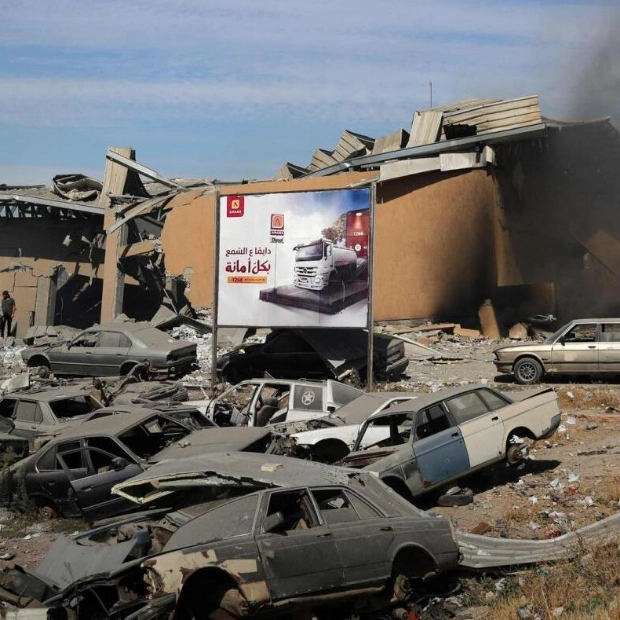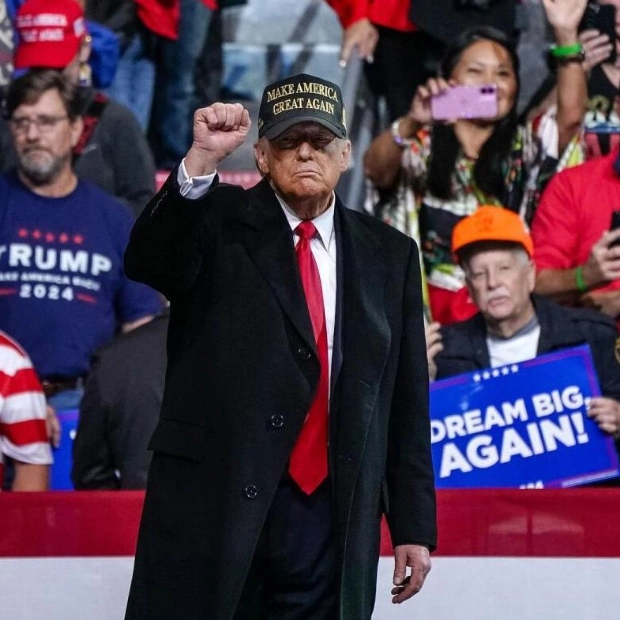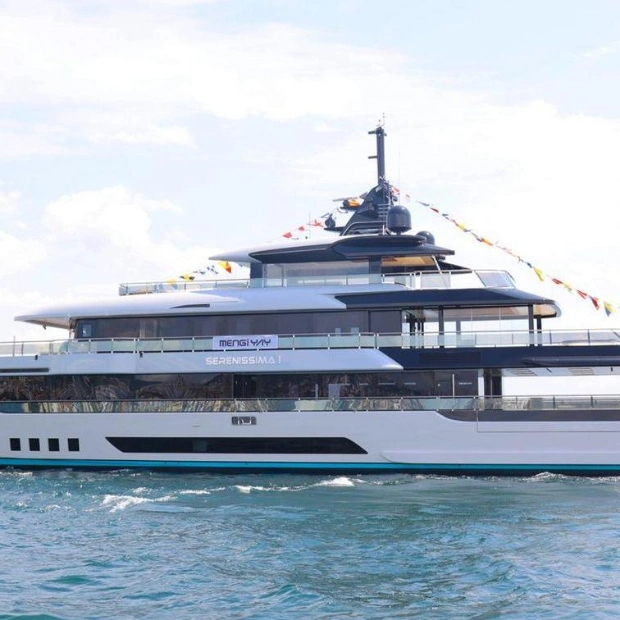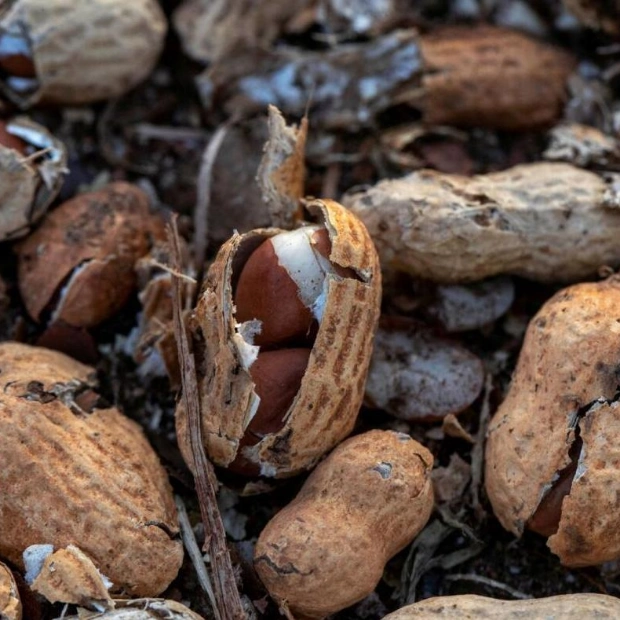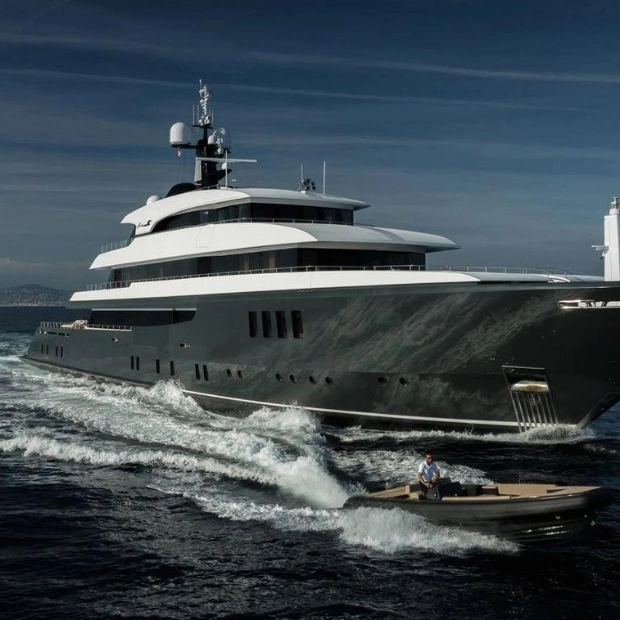At the bustling Saint-Ouen flea market, close to the Stade de France which will host the Paris Olympics this summer, police conducted a dawn raid on April 3, closing down 11 shops suspected of selling counterfeit bags and shoes. Officers seized 63,000 items, including fake Louis Vuitton and Nike products, which were immediately crushed by garbage trucks. Ten individuals were arrested.
Michel Lavaud, the police security chief for Seine-Saint-Denis, the area set to host the Paris 2024 athletics, swimming events, and closing ceremony, characterized this operation as part of a broader pre-Olympics initiative to combat counterfeit goods. The counterfeit fashion industry is substantial; European Union Intellectual Property Office data suggests that fake branded clothing alone has cost French companies an average of 1.7 billion euros annually from 2018 to 2021.
Lavaud noted that discussions about the counterfeit issue have been ongoing for two years, with police efforts set to intensify. The raid in Paris echoes similar actions taken by previous Olympic hosts, such as Beijing in 2008, London in 2012, and Rio in 2016, though with varying outcomes. However, the crackdown on street vendors in Seine-Saint-Denis, where poverty rates are high, has sparked criticism for exacerbating economic hardships among the already vulnerable.
Axel Wilmort, a researcher at LAVUE, a French social science institute for urban studies, observed a significant rise in police presence and suppression of informal sellers around Paris in the past three months, including increased patrols and the installation of barriers to prevent stall setups. He commented that there is a clear intent to eliminate signs of poverty and undesirability, with law enforcement often not distinguishing between counterfeit and legitimate second-hand sellers.
Police operations against informal merchants near Paris's Montmartre have escalated since February, with ten raids conducted over four days in early June aimed at dismantling a market with around 1,000 vendors. In March alone, 70 tonnes of products were destroyed. Reuters reported in April on a large-scale police operation targeting petty crime in deprived Paris suburbs ahead of the Olympics.
Anticipating around 15 million visitors for the Paris Olympics, a significant draw for luxury goods shoppers, counterfeit sellers pose a tempting target. Recognizing this threat, both Paris 2024 organizers and the International Olympic Committee joined Unifab, a French intellectual property protection association, last year. Unifab collaborates with brands to educate about the risks associated with fake products, which often violate safety standards and support illicit activities.
Unifab's CEO, Delphine Sarfati-Sobreira, emphasized their proactive approach ahead of the Olympics. Paris 2024 sponsor LVMH, the leading luxury conglomerate, is a key member of Unifab. LVMH has been active in collaborating with authorities to protect its intellectual property and safeguard consumers from counterfeiters. France has significantly ramped up its anti-counterfeit efforts, with customs seizing 20.5 million fake items last year, a 78% increase over 2022.
This spring, Unifab trained 1,200 customs agents to authenticate Olympics merchandise, focusing on items like the Paris 2024 mascot and clothing. Additionally, French authorities employ 70 agents dedicated to combating online counterfeiting, aiming to disrupt both local and international criminal networks. Intellectual property lawyer John Coldham, a partner at Gowling WLG in London, highlighted Paris's efforts to avoid being labeled as Europe's counterfeit capital.
However, French luxury brands might face greater challenges from the potential reluctance of foreign tourists to visit Paris during the Olympics, rather than from lost revenue due to counterfeits. Air France-KLM recently warned of a potential loss of up to 180 million euros this summer due to reduced foreign tourist numbers. LVMH and other luxury groups have indicated they do not expect a significant revenue boost from the Olympics and may redirect their focus to other markets.
Luca Solca, a luxury goods analyst at Bernstein, noted that luxury companies are prepared to attract shoppers in locations beyond Paris, such as the Cote d'Azur, Milan, and other destinations.
